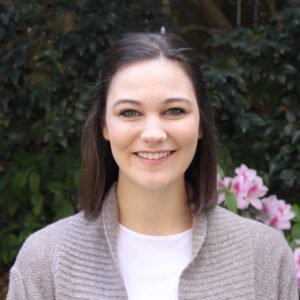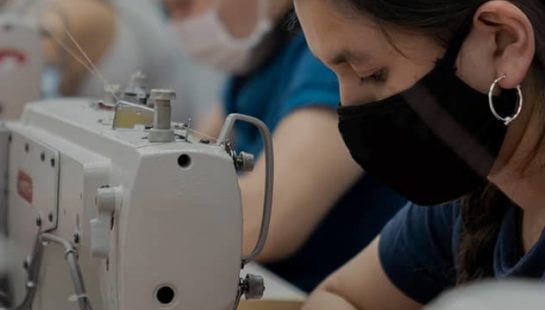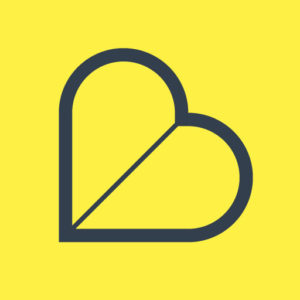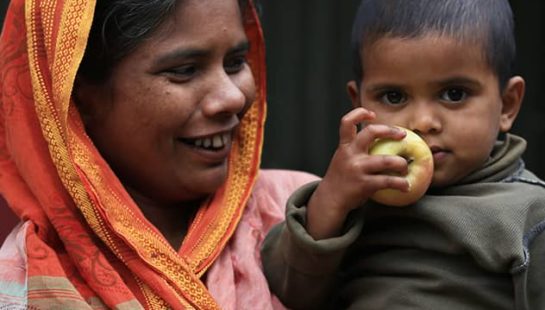“Ughyurs For Sale” Report
“Uyghurs for sale”… that was the chilling title of this ground-breaking report from the Australian Strategic Policy Institute (ASPI) in 2020.
You may remember us talking about the exploitation of the Uyghur people in 2019. In July of that year, Four Corners reported on the use of forced labour involving the Uyghur people in the Xinjiang region of China – a region known for being a major supplier of cotton for popular Australian and international brands. As part of the Communist Party’s persecution of the Uyghur minority group, up to 1 million individuals were reportedly being forced to work in factories in exploitative circumstances, after being rounded up and incarcerated by the Chinese regime.
Which Popular Brands Are Engaging With Factories Using Forced Labour In China?
The exploitation of the Uyghur people made headlines again in 2020, with research from the ASPI suggesting more than 80,000 Uyghurs have been mass transferred from “re-education camps” in the Xinjiang region to work under forced labour conditions in factories across the country.
Factories that several popular international brands source from
Abercrombie & Fitch, Adidas, GAP, H&M, Lacoste, Nike, Puma, PVH (Calvin Klein and Tommy Hilfiger), Ralph Lauren, Uniqlo, VF Corp, Victoria’s Secret (formerly known by L brands), and Inditex (Zara) are amongst the fashion brands listed as sourcing labour from the factories that the Uyghur people have reportedly been transferred to.
Baptist World Aid Australia’s response
This is deeply disturbing. It is a confronting reminder of the insidious use of forced labour in the global garment supply chain, and a reminder of our connection to the people who make our clothes.
All the implicated brands are popular with consumers in Australia. And they are all brands which are assessed in the Ethical Fashion Report.
Brands Respond To Reports Of Forced Labour
We believe that the ability to uncover and remediate instances of forced labour (or other forms of exploitation and modern slavery) is a mark of an effective labour rights management system. And so, following this report, we reached out to 13 brands listed, to find out how they intended to investigate these allegations further, and remediate where necessary.
Of the 13 companies that we reached out to, ten responded (as of 25 March 2020)
Here is a summary of what we received.
Adidas has investigated the suppliers listed in the report and found that they are not part of its “approved” supply chain. Adidas does not currently have any orders from these suppliers.
Inditex (Zara) is engaging in thorough due diligence across its supply chain in China through the brand’s internal teams, and expert external partners.
L Brands (Victoria’s Secret) has stated that its suppliers have certified that they have received, read, and understood their policy against forced labour. In 2019, L Brands had the implicated supplier audited by third party inspector Elevate, who found that their conduct complied with labour standards.
PVH (Calvin Klein and Tommy Hilfiger) has a code of conduct against forced labour and stated that it has been assured by their suppliers that no violations exist.
H&M has a due diligence process in place that aims to identify and address any risks. H&M is in close dialogue with human rights experts, other brands, and stakeholders, to evaluate how it can further strengthen its due diligence.
Lacoste stated that it had performed an audit on one of the factories listed in 2019 which found no evidence of forced labour practices, however Lacoste said it would be further investigating this situation and requesting more information from the company in charge of that audit. The other three factories that were listed as part of Lacoste’s supply chains have already, or will be, thoroughly investigated and audited, and the brand has requested proof from its suppliers that no forced labor has occurred in the factory.
Nike stated that their Code of Conduct and Code Leadership Standards prohibit forced labour, and that they continue to evaluate supplier compliance with their Codes. They also shared that they didn’t have a direct relationship with the named suppliers, but Taekwang’s Qingdao facility has not recruited new employees from Xinjiang Uighur Autonomous Region (XUAR). This facility is currently seeking expert advice on the best, most responsible approach to conclude the employment of remaining employees from XUAR.
PUMA acknowledged that even though it has no direct relationship with the yarn company implicated, some of its fabric suppliers buy yarn from the company, and, so, they will investigate further. Puma told us that it monitors its tier one and two suppliers, but not the lower levels of its supply chain. Puma stated that it has no direct or indirect relationships with the other two factories listed.
UNIQLO denied having business with the two factories listed against it in the report.
VF Corp have an Anti-Forced Labor and Responsible Recruitment Commitment, including policies and standards that underpin their commitment. They have endeavoured to improve supply chain transparency, including cotton traceability, in an effort to better identify third party suppliers that may be complicit in human rights abuses.
(See the full-text responses here)
Justice For The Uyghur People
As you can see, the responses were varied. A number of brands denied any involvement with these factories, some are exclusively placing their confidence in their codes of conduct, or the assurances of their Chinese suppliers, and only a few brands explicitly mentioned further investigations and auditing. No brand made any statements about potential remediation for those workers.
The Current State Of Play
In 2022, the office of the UN High Commissioner for Human Rights released a long-awaited report into what China refers to as the Xinjiang Uyghur Autonomous Region (XUAR). The report concluded that serious human rights violations, including forced labour, against Uyghur and other minority communities have been committed.
Given that an estimated 20 per cent of the world’s cotton is grown in China, and that up to 90 per cent of that comes from the Xinjiang region, it is hard to detangle Uyghur forced labour from fashion’s supply chains without a robust, collaborative approach from governments, major Australian and global fashion brands and civil society.
Baptist World Aid continues monitoring this situation and the responses of brands as they contribute to the Ethical Fashion project. . The Ethical Fashion Report assesses brands on the processes they have in place to identify risks, and prevent, investigate, and remediate forced labour within their supply chain. We also continue our collaboration with academics and civil society to see strengthened business practices and government regulation regarding all forms of modern slavery, which we have reported on here.
Please join us in sharing the plight of the Uyghur people with your communities, and praying for justice.
Last updated: July 2023



 Baptist World Aid
Baptist World Aid

 Chantelle Mayo
Chantelle Mayo